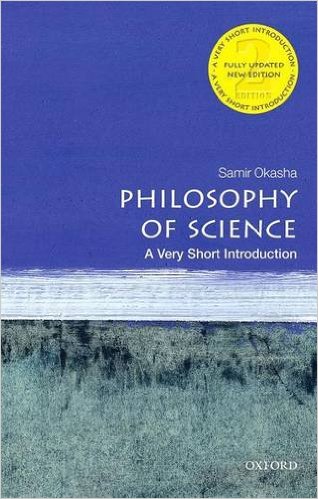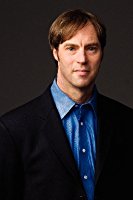- Series: Very Short Introductions
- Paperback: ۱۶۰ pages
- Publisher: Oxford University Press; 2 edition (September 28, 2016)
- Language: English
- ISBN-10: ۰۱۹۸۷۴۵۵۸۳
- ISBN-13: ۹۷۸-۰۱۹۸۷۴۵۵۸۷
- Product Dimensions: ۶.۷ x 0.4 x 4.4 inches
- Shipping Weight: ۴.۲ ounces (View shipping rates and policies)
- Average Customer Review: ۴.۳ out of 5 stars See all reviews (۹۰ customer reviews)
Philosophy of Science: A Very Short Introduction
0 تومان
by Samir Okasha
How much faith should we place in what scientists tell us? Is it possible for scientific knowledge to be fully “objective?” What, really, can be defined as science? In the second edition of this Very Short Introduction, Samir Okasha explores the main themes and theories of contemporary philosophy of science, and investigates fascinating, challenging questions such as these.
Starting at the very beginning, with a concise overview of the history of science, Okasha examines the nature of fundamental practices such as reasoning, causation, and explanation. Looking at scientific revolutions and the issue of scientific change, he asks whether there is a discernible pattern to the way scientific ideas change over time, and discusses realist versus anti-realist attitudes towards science. He finishes by considering science today, and the social and ethical philosophical questions surrounding modern science.
ABOUT THE SERIES: The Very Short Introductions series from Oxford University Press contains hundreds of titles in almost every subject area. These pocket-sized books are the perfect way to get ahead in a new subject quickly. Our expert authors combine facts, analysis, perspective, new ideas, and enthusiasm to make interesting and challenging topics highly readable.
محصولات مرتبط
?Why Evolution Is True
by Jerry A. Coyne
"Coyne's knowledge of evolutionary biology is prodigious, his deployment of it as masterful as his touch is light." -Richard Dawkins
In the current debate about creationism and intelligent design, there is an element of the controversy that is rarely mentioned-the evidence. Yet the proof of evolution by natural selection is vast, varied, and magnificent. In this succinct and accessible summary of the facts supporting the theory of natural selection, Jerry A. Coyne dispels common misunderstandings and fears about evolution and clearly confirms the scientific truth that supports this amazing process of change. Weaving together the many threads of modern work in genetics, paleontology, geology, molecular biology, and anatomy that demonstrate the "indelible stamp" of the processes first proposed by Darwin, Why Evolution Is True does not aim to prove creationism wrong. Rather, by using irrefutable evidence, it sets out to prove evolution right.
Bosch Automotive Electrics and Automotive Electronics
by Robert Bosch GmbH
This is a complete reference guide to automotive electrics and electronics. This new edition of the definitive reference for automotive engineers, compiled by one of the world's largest automotive equipment suppliers, includes new and updated material. As in previous editions different topics are covered in a concise but descriptive way backed up by diagrams, graphs, photographs and tables enabling the reader to better comprehend the subject. This fifth edition revises the classical topics of the vehicle electrical systems such as system architecture, control, components and sensors. There is now greater detail on electronics and their application in the motor vehicle, including electrical energy management (EEM) and discusses the topic of inter system networking within the vehicle. It also includes a description of the concept of hybrid drive a topic that is particularly current due to its ability to reduce fuel consumption and therefore CO2 emissions.This book will benefit automotive engineers and design engineers, automotive technicians in training and mechanics and technicians in garages. It may also be of interest to teachers/ lecturers and students at vocational colleges, and enthusiasts.
Darwin’s Doubt: The Explosive Origin of Animal Life and the Case for Intelligent Design
by Stephen C. Meyer
When Charles Darwin finished The Origin of Species, he thought that he had explained every clue, but one. Though his theory could explain many facts, Darwin knew that there was a significant event in the history of life that his theory did not explain. During this event, the “Cambrian explosion,” many animals suddenly appeared in the fossil record without apparent ancestors in earlier layers of rock.
In Darwin’s Doubt, Stephen C. Meyer tells the story of the mystery surrounding this explosion of animal life—a mystery that has intensified, not only because the expected ancestors of these animals have not been found, but because scientists have learned more about what it takes to construct an animal. During the last half century, biologists have come to appreciate the central importance of biological information—stored in DNA and elsewhere in cells—to building animal forms.
Expanding on the compelling case he presented in his last book, Signature in the Cell, Meyer argues that the origin of this information, as well as other mysterious features of the Cambrian event, are best explained by intelligent design, rather than purely undirected evolutionary processes.
Life on the Edge: The Coming of Age of Quantum Biology
by Johnjoe McFadden
New York Times Bestseller and an Amazon Best Science Book of 2015
Life is the most extraordinary phenomenon in the known universe; but how did it come to be? Even in an age of cloning and artificial biology, the remarkable truth remains: nobody has ever made anything living entirely out of dead material. Life remains the only way to make life. Are we still missing a vital ingredient in its creation?
Like Richard Dawkins' The Selfish Gene, which provided a new perspective on how evolution works, Life on the Edge alters our understanding of our world's fundamental dynamics. Bringing together first-hand experience at the cutting edge of science with unparalleled gifts of explanation, Jim Al-Khalili and Johnjoe Macfadden reveal that missing ingredient to be quantum mechanics; the phenomena that lie at the heart of this most mysterious of sciences.
Drawing on recent ground-breaking experiments around the world, each chapter in Life on the Edge engages by illustrating one of life's puzzles: How do migrating birds know where to go? How do we really smell the scent of a rose? How do our genes copy themselves with such precision? Life on the Edge accessibly reveals how quantum mechanics can answer these probing questions of the universe.
Guiding the reader through the rapidly unfolding discoveries of the last few years, Al-Khalili and McFadden communicate the excitement of the explosive new field of quantum biology and its potentially revolutionary applications, while offering insights into the biggest puzzle of all: what is life? As they brilliantly demonstrate in these groundbreaking pages, life exists on the quantum edge.
– Winner, Stephen Hawking Medal for Science Communication
Stealing from God: Why Atheists Need God to Make Their Case
by Frank Turek (Author), Ravi Zacharias (Foreword)
If you think atheists have reason, evidence, and science on their side, think again! Award-winning author Dr. Frank Turek (I Don’t Have Enough Faith to be an Atheist) will show you how atheists steal reason, evidence, science, and other arguments from God in trying to make their case for atheism. If that sounds contradictory, it’s because it is! Atheists can’t make their case without appealing to realities only theism can explain. In an engaging and memorable way, Stealing from God exposes these intellectual crimes atheists are committing and then provides four powerful reasons for why Christianity is true.
The End of Faith: Religion, Terror, and the Future of Reason
by Sam Harris
"The End of Faith articulates the dangers and absurdities of organized religion so fiercely and so fearlessly that I felt relieved as I read it, vindicated....Harris writes what a sizable number of us think, but few are willing to say."―Natalie Angier, ?New York Times
In ?The End of Faith?, Sam Harris delivers a startling analysis of the clash between reason and religion in the modern world. He offers a vivid, historical tour of our willingness to suspend reason in favor of religious beliefs―even when these beliefs inspire the worst human atrocities. While warning against the encroachment of organized religion into world politics, Harris draws on insights from neuroscience, philosophy, and Eastern mysticism to deliver a call for a truly modern foundation for ethics and spirituality that is both secular and humanistic. Winner of the 2005 PEN/Martha Albrand Award for Nonfiction.
The God Delusion
by Richard Dawkins
A preeminent scientist -- and the world's most prominent atheist -- asserts the irrationality of belief in God and the grievous harm religion has inflicted on society, from the Crusades to 9/11.
With rigor and wit, Dawkins examines God in all his forms, from the sex-obsessed tyrant of the Old Testament to the more benign (but still illogical) Celestial Watchmaker favored by some Enlightenment thinkers. He eviscerates the major arguments for religion and demonstrates the supreme improbability of a supreme being. He shows how religion fuels war, foments bigotry, and abuses children, buttressing his points with historical and contemporary evidence. The God Delusion makes a compelling case that belief in God is not just wrong but potentially deadly. It also offers exhilarating insight into the advantages of atheism to the individual and society, not the least of which is a clearer, truer appreciation of the universe's wonders than any faith could ever muster.
The Golden Ratio: The Story of PHI, the World’s Most Astonishing Number
by Mario Livio
Throughout history, thinkers from mathematicians to theologians have pondered the mysterious relationship between numbers and the nature of reality. In this fascinating book, Mario Livio tells the tale of a number at the heart of that mystery: phi, or 1.6180339887...This curious mathematical relationship, widely known as "The Golden Ratio," was discovered by Euclid more than two thousand years ago because of its crucial role in the construction of the pentagram, to which magical properties had been attributed. Since then it has shown a propensity to appear in the most astonishing variety of places, from mollusk shells, sunflower florets, and rose petals to the shape of the galaxy. Psychological studies have investigated whether the Golden Ratio is the most aesthetically pleasing proportion extant, and it has been asserted that the creators of the Pyramids and the Parthenon employed it. It is believed to feature in works of art from Leonardo da Vinci's Mona Lisa to Salvador Dali's The Sacrament of the Last Supper, and poets and composers have used it in their works. It has even been found to be connected to the behavior of the stock market!
The Golden Ratio is a captivating journey through art and architecture, botany and biology, physics and mathematics. It tells the human story of numerous phi-fixated individuals, including the followers of Pythagoras who believed that this proportion revealed the hand of God; astronomer Johannes Kepler, who saw phi as the greatest treasure of geometry; such Renaissance thinkers as mathematician Leonardo Fibonacci of Pisa; and such masters of the modern world as Goethe, Cezanne, Bartok, and physicist Roger Penrose. Wherever his quest for the meaning of phi takes him, Mario Livio reveals the world as a place where order, beauty, and eternal mystery will always coexist.
The Selfish Gene: 30th Anniversary Edition–with a new Introduction by the Author
by Richard Dawkins
Richard Dawkins' brilliant reformulation of the theory of natural selection has the rare distinction of having provoked as much excitement and interest outside the scientific community as within it. His theories have helped change the whole nature of the study of social biology, and have forced thousands of readers to rethink their beliefs about life. In his internationally bestselling, now classic volume, The Selfish Gene, Dawkins explains how the selfish gene can also be a subtle gene. The world of the selfish gene revolves around savage competition, ruthless exploitation, and deceit, and yet, Dawkins argues, acts of apparent altruism do exist in nature. Bees, for example, will commit suicide when they sting to protect the hive, and birds will risk their lives to warn the flock of an approaching hawk. This 30th anniversary edition of Dawkins' fascinating book retains all original material, including the two enlightening chapters added in the second edition. In a new Introduction the author presents his thoughts thirty years after the publication of his first and most famous book, while the inclusion of the two-page original Foreword by brilliant American scientist Robert Trivers shows the enthusiastic reaction of the scientific community at that time. This edition is a celebration of a remarkable exposition of evolutionary thought, a work that has been widely hailed for its stylistic brilliance and deep scientific insights, and that continues to stimulate whole new areas of research today.
Undeniable: Evolution and the Science of Creation
by Bill Nye (Author), Corey S. Powell (Editor)
The New York Times best seller by the host of Bill Nye the Science Guy, with a brand new chapter for the paperback edition! "Evolution is one of the most powerful and important ideas ever developed in the history of science. Every question it raises leads to new answers, new discoveries, and new smarter questions. The science of evolution is as expansive as nature itself. It is also the most meaningful creation story that humans have ever found."-Bill Nye Sparked by a controversial debate in February 2014, Bill Nye has set off on an energetic campaign to spread awareness of evolution and the powerful way it shapes our lives. In Undeniable: Evolution and the Science of Creation, he explains why race does not really exist; evaluates the true promise and peril of genetically modified food; reveals how new species are born, in a dog kennel and in a London subway; takes a stroll through 4.5 billion years of time; and explores the new search for alien life, including aliens right here on Earth.
With infectious enthusiasm, Bill Nye shows that evolution is much more than a rebuttal to creationism; it is an essential way to understand how nature works-and to change the world. It might also help you get a date on a Saturday night.
What If?: Serious Scientific Answers to Absurd Hypothetical Questions
by Randall Munroe
From the creator of the wildly popular webcomic xkcd, hilarious and informative answers to important questions you probably never thought to ask.
Millions of people visit xkcd.com each week to read Randall Munroe’s iconic webcomic. His stick-figure drawings about science, technology, language, and love have a large and passionate following.
Fans of xkcd ask Munroe a lot of strange questions. What if you tried to hit a baseball pitched at 90 percent the speed of light? How fast can you hit a speed bump while driving and live? If there was a robot apocalypse, how long would humanity last?
In pursuit of answers, Munroe runs computer simulations, pores over stacks of declassified military research memos, solves differential equations, and consults with nuclear reactor operators. His responses are masterpieces of clarity and hilarity, complemented by signature xkcd comics. They often predict the complete annihilation of humankind, or at least a really big explosion.
The book features new and never-before-answered questions, along with updated and expanded versions of the most popular answers from the xkcd website. What If? will be required reading for xkcd fans and anyone who loves to ponder the hypothetical.
Word Power Made Easy: The Complete Handbook for Building a Superior Vocabulary Mass Market
by Norman Lewis
The most effective English language vocabulary builder available: this time-tested classic has helped millions achieve mastery of English both in its written and spoken forms. Word Power Made Easy provides a simple, step-by-step method for increasing knowledge and mastery of the language. Arranged in thematic sections—on everything from how to flatter friends and insult enemies to how to talk precisely about science and medicine—the book is written in a lively, accessible, and often humorous style, presenting ideas and a method of broadening your knowledge as an integral part of vocabulary-building. The author delves into etymology to arm the reader to decode unfamiliar words, provides phonetic pronunciations, gives tips on avoiding common spelling errors, and offers useful sections on which fussy, old-fashioned grammar rules are valid and which are outdated or misguided and can be safely ignored. Loaded with helpful reviews, progress checks, and quizzes to reinforce the material, this classic resource—first published sixty years ago—has helped millions learn to speak and write with greater sophistication.
























نقد و بررسیها
هنوز بررسیای ثبت نشده است.